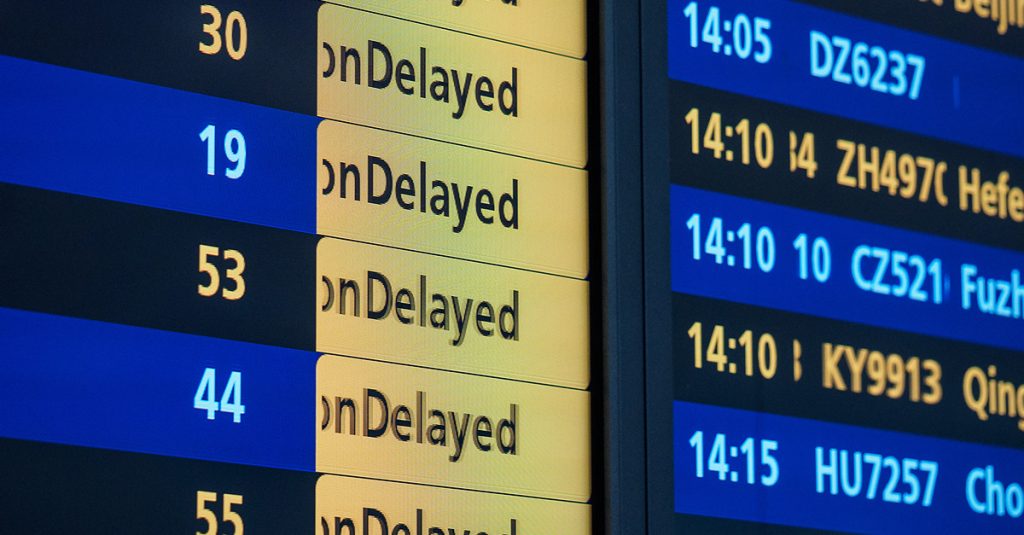The European Court of Justice has delivered a landmark ruling favouring airlines regarding delay compensation.
Clarifying the interpretation of ‘exceptional circumstances’, this decision impacts how passenger compensation claims are assessed.
Background of the European Court’s Decision
The European Court of Justice’s recent decision marks a significant turn in the ongoing dialogue between airlines and consumer rights advocates. The ruling has clarified the legal stance on what constitutes ‘exceptional circumstances’ under EU Regulation 261, which has long been a point of contention. This regulation mandates compensation for passengers who face delays exceeding three hours, barring unavoidable exceptional circumstances.
The case in focus was brought forward by the claims-handler Flightright on behalf of passengers affected by a flight delay from Cologne to Kos. The flight, operated by Tourist Aviation Services, was delayed for several reasons including a staff shortage and adverse weather conditions. Notably, this was not the first time the ECJ had ruled in favour of the airlines, indicating a judicial trend towards supporting operational realities over automatic compensation.
Defining ‘Exceptional Circumstances’
At the heart of this ruling is the definition of ‘exceptional circumstances’, a term crucial to the regulation. According to the European Court of Justice, such circumstances are defined as events beyond the actual control of the operating carrier, often arising from natural events or acts by third parties.
The specific instance of delayed baggage handling due to insufficient staffing at Cologne Bonn airport was pivotal. Here, the court deemed that the staffing issues fell under ‘extraordinary circumstances’, exempting the airline from providing compensation. The airport operator’s role in baggage operations was highlighted as a third-party act, reinforcing this interpretation.
The Case Details and Judicial Proceedings
The airline, Tourist Aviation Services, experienced an aggregate delay of nearly four hours, primarily attributed to staffing shortages and weather conditions.
Claims-handler Flightright initially succeeded in a lower court, arguing that the circumstances did not meet the threshold for ‘exceptional’. However, the airline argued that because the baggage staff were employed by the airport operator and not the airline, this constituted an extraordinary event outside their control. The regional court in Germany sought clarity from the ECJ before drawing a conclusion.
The ECJ’s ruling directed back to the national court emphasised that while airlines must demonstrate the unavoidable nature of such circumstances, the ultimate decision on each case’s specifics remains with the local judiciary. This framework allows for a nuanced interpretation based upon individual case variables.
Impact on Airlines and Passengers
The ruling provides airlines with more leverage to contest compensation claims under specific scenarios, potentially reducing financial liabilities.
For passengers, this translates to a more stringent threshold for receiving compensation in cases of delay. Passengers may now face more rigorous requirements to prove that delays were not due to exceptional circumstances.
Despite this outcome, there remains a robust legal framework for passengers to seek redress, albeit with a refined understanding of ‘exceptional circumstances’. The debate over this regulation highlights the balance airlines must strike between operational challenges and passenger rights.
Reactions from Industry Stakeholders
The airline industry has largely welcomed the ruling as a practical acknowledgement of the complexities surrounding flight operations and staffing management.
Consumer advocacy groups have expressed concern, arguing that the decision may dilute passenger rights and lead to increased difficulties in securing compensation.
Flight compensation companies, like Flightright, will likely adjust their approach to claims, focusing on clear-cut cases where extraordinary circumstances cannot be credibly argued.
Long-term Consequences for EU Aviation Regulation
This decision may influence future interpretations of EU Regulation 261, potentially leading to calls for revisiting and revising the regulation to reflect current operational realities.
As the airline industry evolves, legal frameworks may need updating to accommodate technological advancements and socio-economic changes impacting staffing and service delivery.
Policymakers might need to engage in comprehensive dialogues with multiple stakeholders to ensure regulations are balanced, pragmatic, and fair—supporting both consumers and operational businesses within the aviation sector.
Previous Similar Rulings
The ECJ’s ruling is part of a series of decisions favouring airlines, signalling a judicial inclination to assess operational challenges realistically.
Earlier cases have followed a similar path, favouring a pragmatic approach rather than an automatic entitlement to compensation for passengers. These precedents are shaping the ongoing conversation around passenger rights and airline obligations.
The ruling represents a turning point in the application of EU Regulation 261, refining the balance between airline operations and passenger rights.
It underscores the need for clarity in defining ‘exceptional circumstances’, thus shaping future claims and regulations.

